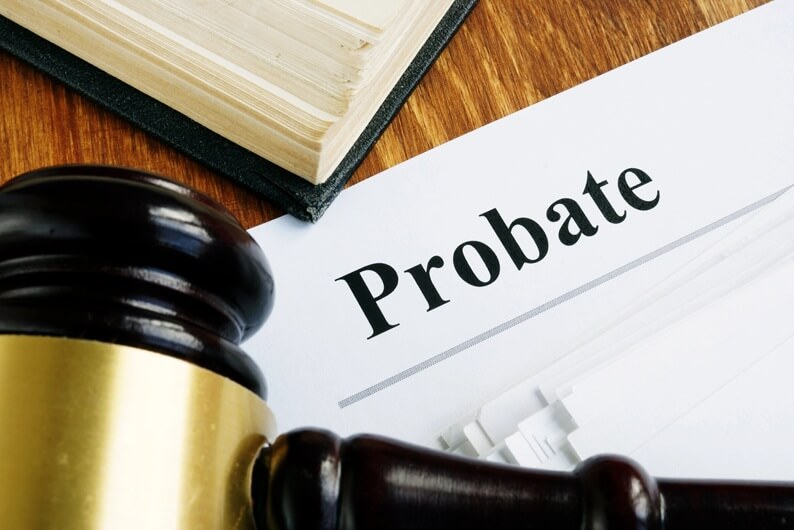How To Handle Real Estate In Trust Administration
Key Points:
- Trustees manage real estate by identifying, valuing, maintaining, and eventually distributing or selling the property.
- Deeds must reflect the trust as owner; otherwise, court action may be necessary.
- Accurate valuation affects taxes and fair distribution.
- Legal compliance is key when selling or transferring property to heirs.
- Disputes often arise over sentimental homes or high-value properties.
When someone you care about leaves property behind in a trust, emotions and logistics can collide. There’s love, legacy, and legal responsibility all tied to the same set of house keys.
Real estate isn’t just another asset. It comes with a story, a market value, and sometimes a line of siblings who all want different things. Your role as trustee is to balance them all.
Identifying Real Estate Assets In A Trust
The first job of any trustee handling real estate is knowing what’s actually in the trust. That sounds simple, but it often takes a little digging.
Start by reading the trust document. Look for any real estate specifically mentioned. Then, cross-check those properties with recorded deeds. If a deed doesn’t list the trust as the legal owner, it’s not technically in the trust, even if that was the trustor’s intent.
This is where many trustees hit a snag. A property might have been discussed for years as “part of the trust.” But if the grantor did not transfer its title under the trust’s name, court involvement might be necessary.
You’ll also want to gather key documents:
- Recorded grant or quitclaim deeds.
- Mortgage statements.
- Property tax bills.
- Insurance records.
Once every property is accounted for and the trust’s ownership is confirmed, you’ll be in a position to take the next step. That is, finding out what each one is worth.
Getting Accurate Real Estate Valuation
Getting the value of trust-owned real estate right isn’t just about numbers. It impacts taxes, distributions, and how much beneficiaries receive. Fairness and accuracy start here.
Why Valuation Matters
Every decision that follows, whether to sell, rent, or transfer a property, depends on its current value. If you’re too high, you risk tax issues. Too low, and someone may feel shortchanged.
Valuation also affects income tax, potential capital gains, and estate planning outcomes down the line. Beneficiaries may disagree if they think the figure doesn’t reflect market reality.
That’s why it’s important to back every number with reliable documentation.
Who Should Perform The Appraisal?
Hire a qualified real estate appraiser, not a guesser. Licensed professionals bring credibility and neutrality, which can prevent arguments before they start.
For special properties, like farmland, commercial buildings, or homes with major renovations, consider multiple appraisals. It gives you a more accurate range and protects your decisions as a trustee.
A real estate agent’s comparative market analysis (CMA) might help for context. But it’s not a legal substitute for a certified appraisal when trust accounting is involved.
What Documents To Keep
Always keep the appraiser’s full contact information and license number on file. It should be along with the date of the appraisal and the method used to determine the property’s value.
Hold onto any photos or inspection notes included in the process, and make sure the complete appraisal report is safely stored. These records help protect you if questions come up.
Even if no one questions the value now, they might later. A detailed paper trail protects you from liability and supports transparency.
Managing Real Estate During Trust Administration
Once the real estate is identified and valued, managing it becomes the trustee’s next priority. This role comes with real responsibilities that affect both the value of the trust and its timeline.
Property Care & Daily Oversight
The trustee is in charge of the day-to-day property needs. That includes scheduling repairs, paying utility bills, and handling landscaping. They also make sure insurance and property taxes stay current at all times.
Even if the home sits vacant, it needs attention. Deferred maintenance can lead to damage, which reduces its value. The trustee must preserve these assets and not allow them to deteriorate.
Income-Producing Real Estate
When the trust owns rental property, the trustee may choose to continue renting it. Rental income helps pay expenses and can boost the overall value of the trust’s estate.
Being a landlord carries legal duties. The trustee must screen tenants, manage lease terms, and follow state rental laws. They must report all rental activity in the trust’s records.
Should The Property Be Sold?
Sometimes the trust directs the sale of a property. Other times, it’s up to the trustee’s judgment. Selling may be the best option when multiple beneficiaries are entitled to share the value.
If beneficiaries disagree, one wants to keep it, another wants cash, the trustee must decide what’s practical and legally sound. Market timing and property condition also factor into the decision.
Managing With Purpose
No property should be in limbo. Whether it’s a condo or commercial building, there must be a plan. That plan should reflect both the trustor’s intentions and today’s financial reality.
If selling the property becomes the path forward, the process isn’t as simple as calling an agent. Legal steps come next, and the trustee needs to get them right.
Legal Requirements For Selling Trust Property
Selling trust-owned real estate in California involves more than a “for sale” sign. Trustees must follow specific rules, and skipping a step can create legal or financial problems down the line.
Confirming Authority To Sell Under The Trust
First, confirm that the trust document gives the trustee the power to sell. If it’s silent or unclear, the trustee may need court approval before moving forward with a sale.
Even if the trust grants broad authority, it’s wise to notify beneficiaries ahead of time. Keeping everyone informed helps avoid claims of misconduct or surprises that could delay the sale.
Preparing The Property For Sale
Before listing the property, the trustee should resolve any title issues. Make sure the deed reflects the trust as the legal owner, not the deceased individual or another party.
Trustees are responsible for property disclosures just like any other seller. They must share that information with buyers during the sale process if the home has defects or hazards.
Handling Escrow & Proceeds
Once the property is in escrow, the trustee must monitor all legal and financial steps. That includes signing on behalf of the trust and directing proceeds to the trust account, not a personal one.
After the sale closes, funds remain in the trust until the final distributions. Those funds might pay debts, taxes, or be distributed among beneficiaries as outlined in the trust.
Getting Legal Advice
Selling a trust-owned property isn’t like selling your own home. There are tax concerns, liability risks, and strict duties under California’s Probate Code. Mistakes can be costly.
Professional legal guidance can help ensure the sale goes smoothly and in full compliance with the law.
Distributing Real Estate To Beneficiaries
Once the property is sold or ready to be transferred, the trustee moves into the final phase. That is, to distribute the asset or its proceeds to the people named in the trust.
Transferring Title To A Beneficiary
If the property is staying in the family, the trustee must prepare legal documents to transfer ownership. It usually means executing a new deed that names the beneficiary as the new titleholder.
That deed must be notarized and recorded with the county recorder’s office. Until that happens, the transfer isn’t official, and the property still legally belongs to the trust.
The trustee should also confirm with the beneficiary whether they’re ready to assume responsibilities like taxes, insurance, and maintenance. Some prefer to sell immediately; others may want to keep it long-term.
Selling The Property Instead Of Keeping It
If the trustee sells the home, they must put the sale proceeds in the trust account. These funds are then divided and distributed according to the trust’s instructions, not necessarily in equal shares.
It’s the trustee’s job to calculate those shares accurately. It often includes adjusting for any expenses paid from the trust, debts owed, or specific conditions tied to individual beneficiaries.
Before making any distributions, the trustee should also address all taxes. That includes property tax, income tax, and potentially capital gains if the sale triggered one.
Communicating With Beneficiaries
Throughout this process, communication makes a difference. Beneficiaries appreciate transparency, even when decisions don’t go their way. A clear explanation goes a long way in maintaining peace and avoiding conflict.
Distributing property might sound like the finish line, but it’s often where tensions peak.
Personalized Support Makes A Difference For Trustees
Real estate in a trust can stir up questions, emotions, and more paperwork than expected. Having the right legal team beside you helps protect both the property and your peace of mind.
We, at Los Angeles Probate Attorneys, work closely with trustees navigating real estate in trust administration. From title transfers to sensitive family dynamics, we bring steady guidance to each phase of the process.
If you’re handling a trust and want clarity on what comes next, legal support isn’t just helpful, it’s smart. Reach out to us today and take the next step with confidence.










